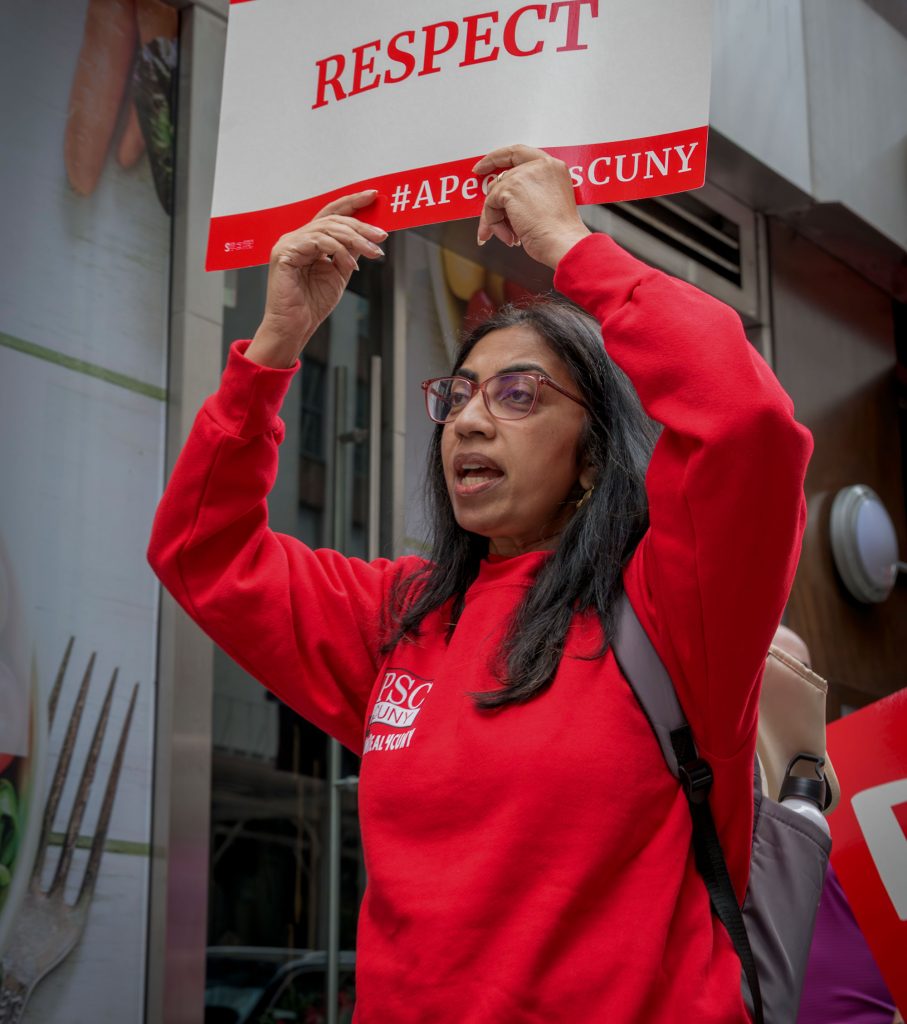Malini Cadambi-Daniel, a veteran union organizer with decades of experience with the Service Employees International Union (SEIU), came aboard as the PSC’s new executive director in August. After a long national search, the union’s leadership was confident that her experience, leadership and commitment to trade unionism would be an enormous asset to the PSC.
She recently spoke to Clarion editor Ari Paul.
You have a lot of experience in the labor movement. What motivated you to join the struggle for workers’ rights?
When my family first came to the U.S. in 1969, my parents took whatever jobs they could find, as immigrants do. Because of who they were and their accents, good jobs were inconsistent and hard to come by despite the fact that my father had been a lawyer in India. In the 1980s, we moved from Chicago to Los Angeles and they both found public sector jobs from which they retired. These jobs were good union jobs with health care and pensions – they made all the difference for our family.

Malini Cadambi-Daniel marches with PSC members outside CUNY headquarters. (Credit: Erik McGregor)
I lived in Oakland, Calif., and taught public school briefly. I was a member of the Oakland Education Association and we went on strike in 1996 for a month with the number one issue being class sizes. It was a hard month, and I witnessed awful moments of scabbing and infighting and amazing moments of solidarity and conviction. At some point, I decided classroom teaching was not my calling, but union work was.
These two disparate events crystallized for me how much work impacts our lives: When we aren’t valued at work, when we have no control at work, when we cannot sustain ourselves because of work, it impacts everything in our lives. Fighting for economic justice is critical to having a just world.
You worked primarily at the SEIU, nationally and locally. What were some inspiring things you saw and did there?
So many inspiring things. I received a call from Hannah, a faculty member at a New York City university who got my contact from their cousin, who taught at a Boston university where we helped win the union. Hannah was whispering when she spoke with me, clearly upset and very nervous about even beginning the union conversation, but she had had enough from her university’s administration. The campaign was long and brutal but Hannah met every challenge. I watched this faculty member grow exponentially through the campaign, a phenomenal leader who was shouting with joy at winning the union election. It is always amazing to see that growth during a campaign. Learning to organize is something you can never unlearn, no matter the outcome of the election or what the boss does.
At 1199, there are so many BIPOC and immigrant women who do some of the hardest, lowest paid work like homecare and Licensed Practical Nurse work. The union winning $1, $2, $3 more an hour for them is the difference between making rent and being on the street. The training funds moved members from LPN to RN – these members were once the lowest paid in their hospitals but were running departments because of the programs.
Unions are transformative.
What attracts you to working with CUNY’s faculty and staff?
My partner is CUNY faculty, so it’s very personal to me. I have watched the PSC from a close distance and love that it is a fighting union! I love that the PSC represents the people who help make CUNY a jewel of higher education, not just in NYC but nationally.
What is a goal you have for yourself and for the PSC?
Sustainability! I want the PSC to be at its strongest in member engagement, in its finances and in its contract, because the fights don’t get any easier. Our members work hard, care about the campus community and live in one of the most expensive cities in the world. For CUNY to remain the fabulous institution it is for its students, the tens of thousands of faculty, staff, graduate and service workers need great contracts. I also believe in making my work and activism personally sustainable. We are in it for the long haul, folks. Take care of your health and take care of each other.
Published: October 29, 2024

